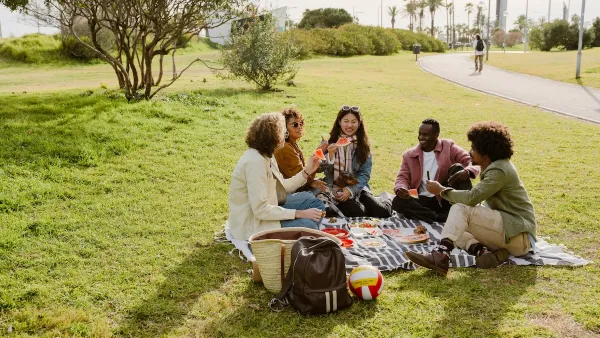The rise in virtual connections and Internet-based communities had many worried that traditional community interaction was dying out. Governing's Alan Ehrenhalt argues it hasn't yet, and probably won't.
"A decade or so ago, having just written a book about the decline of community in America, I found myself giving speeches on the subject to audiences in different parts of the country. The reactions varied, but there was one thing I could always count on: Someone would rise during the question period and ask me about Internet communities. Aren't they the modern replacement for old-fashioned geographical community? Who needs street life when you can be in instant communication with a like-minded beekeeper or Bordeaux drinker anywhere in the world?"
"My answer was always simple and unyielding. Internet communities are a sham. They lack the permanence, commitment and even the reliability of face-to-face social interaction. Much of the time, you don't even know who the person on the other end is. The only genuine community, I kept repeating, was the kind where you can count on seeing your friends in person, week after week, year after year. Some audiences bought this; others didn't."
"In the ensuing few years, my rigid view took something of a beating. Internet relationships, if not full-fledged communities, began to take on a more stable quality."
"In view of all this, I feel the need to be a little cautious in suggesting that as we approach the end of another decade, the pendulum may be starting to swing again. Distance didn't die. Place didn't die. In fact, in much of what you see and read these days, you begin to get the feeling that place - the soil of old-fashioned geographical community - is making a comeback."
FULL STORY: The Rediscovery of Place

Maui's Vacation Rental Debate Turns Ugly
Verbal attacks, misinformation campaigns and fistfights plague a high-stakes debate to convert thousands of vacation rentals into long-term housing.

Planetizen Federal Action Tracker
A weekly monitor of how Trump’s orders and actions are impacting planners and planning in America.

San Francisco Suspends Traffic Calming Amidst Record Deaths
Citing “a challenging fiscal landscape,” the city will cease the program on the heels of 42 traffic deaths, including 24 pedestrians.

Defunct Pittsburgh Power Plant to Become Residential Tower
A decommissioned steam heat plant will be redeveloped into almost 100 affordable housing units.

Trump Prompts Restructuring of Transportation Research Board in “Unprecedented Overreach”
The TRB has eliminated more than half of its committees including those focused on climate, equity, and cities.

Amtrak Rolls Out New Orleans to Alabama “Mardi Gras” Train
The new service will operate morning and evening departures between Mobile and New Orleans.
Urban Design for Planners 1: Software Tools
This six-course series explores essential urban design concepts using open source software and equips planners with the tools they need to participate fully in the urban design process.
Planning for Universal Design
Learn the tools for implementing Universal Design in planning regulations.
Heyer Gruel & Associates PA
JM Goldson LLC
Custer County Colorado
City of Camden Redevelopment Agency
City of Astoria
Transportation Research & Education Center (TREC) at Portland State University
Jefferson Parish Government
Camden Redevelopment Agency
City of Claremont




























